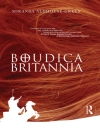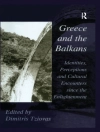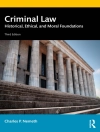As one of the premier historical thinkers of his generation, Jörn Rüsen has made enormous contributions to the methods and theoretical framework of history as it is practiced today. In Evidence and Meaning, Rüsen surveys the seismic changes that have shaped the historical profession over the last half-century, while offering a clear, economical account of his theory of history. To traditional historiography Rüsen brings theoretical insights from philosophy, narrative theory, cultural studies, and the social sciences, developing an intricate but robust model of “historical thinking” as both a cognitive discipline and a cultural practice—one that is susceptible neither to naïve empiricism nor radical relativism.
İçerik tablosu
Preface
Introduction
Chapter 1. What is Metahistory?
Chapter 2. The Foundation of Historical Thinking
How Does History come into the World? The Elemental Forms in the Forming of Historical Meaning An Aside: Contingency and Freedom Experiencing Crisis and the Forming of Historical Meaning: A Typology
Chapter 3. History as Academic Discipline
Historical Meaning and Academic Study Method and Truth The Criteria for Truth in Historical Thinking Academia: Intercultural Validity or Culturally Specific Relativity? Disciplinary Matrix I: The Five Factor System Disciplinary Matrix II: The Schema of Five Practices Disciplinary Matrix III: The Three Levels of Forming Historical Meaning
Chapter 4. A Systematic Approach: Categories, Theories, Concepts
What is the Issue? ‘History’ as Concept of Meaning: A Look at Content and Form Teleology and Reconstruction A Problem Unresolved: The Natural World Means of Access I: The Categorical Dimensions of the Historical Means of Access II: The Realm of Experience Revealed Means of Access III: The Realm of Interpretation Revealed Means of Access IV: The Realm of Orientation Revealed Interpretation in Context: Historical Theories Comprehending the Matter: Historical Concepts What is Historical Explanation?
Chapter 5. Methodology: The Rules of the Historical Method
The Methodological Character of Historical Knowledge The Unity of the Historical Method Heuristrics Criticism Interpretation From Interpretation to Representation
Chapter 6. Topics: How We Write History
The Waywardness of Writing Imagination, Fiction, Experience Orders of Historiographical Representation: The Range of Possibilities Typology of Historical Narrative I: Droysen, Nietzsche, White Typology of Historical Narrative II: Classifying the Formation of Historical Meaning into Four Types Typology of Historical Narrative III: Meaning and Rationality
Chapter 7. The Basis of Historical Culture
Historical Culture as Societal Practice Historical Consciousness and Memory Five Dimensions of Historical Culture Orientation and Criticism: The Purpose of Historical Studies The Role of Value Freedom
Chapter 8. Practical History: Learning, Understanding, Humanity
The Theoretical Foundation of History Didactics Standards of Historical Judgement: Understanding and Morality Politics of Memory and Historical Identity Overcoming Ethnocentrism through Historical Humanism
Final Reflections: Finding Reason Between Meaning and Meaninglessness
Meaning and Meaninglessness Once Again: The Limitations of Science
Bibliography
Index
Yazar hakkında
Jörn Rüsen is Professor Emeritus of General History and Historical Culture at Witten/Herdecke University. He has also taught at the Universities of Berlin, Bochum and Bielefeld and was Director of the Institute for Advanced Study at Essen. His books and articles have been translated into twenty different languages. Dr. Rüsen is the Founding Editor of the Berghahn Books series Making Sense of History.












